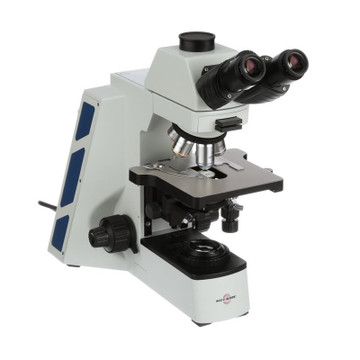
Hematology & Blood Cell Analysis Microscopes
Microscopes Designed for Blood Cell Research and Diagnostic Accuracy
Hematology and blood cell analysis require microscopes that deliver crisp resolution, high contrast, and repeatable performance to ensure diagnostic precision. From routine blood smears to advanced hematology research, our microscopes are designed to support clinical laboratories, research centers, and educational programs.
Product Category Overview
Explore microscope types best suited for hematology and blood cell analysis:
- Clinical Compound Microscopes for routine blood smear evaluations.
- Infinity Plan Optical Microscopes providing sharp, flat-field imaging across the entire slide.
- Phase Contrast Microscopes enhancing visualization of unstained blood cells.
- Fluorescence Microscopes for specialized assays and advanced hematology research.
- Trinocular Microscopes with Digital Integration supporting case documentation, archiving, and telepathology.
Why Choose Our Microscopes for Hematology & Blood Cell Analysis
|
Feature |
Benefit for Hematology Labs |
|
Infinity Plan Optics |
Provides sharp, distortion-free images critical for analyzing blood cells |
|
High Magnification Range |
Supports detailed observation of red and white blood cells and platelets |
|
Phase Contrast Capability |
Enhances viewing of live or unstained specimens |
|
Fluorescence Imaging |
Essential for advanced hematology assays and tagged cell studies |
|
Digital Imaging Ports |
Enables efficient archiving, case sharing, and telepathology |
|
Clinical Durability |
Designed for heavy daily use in diagnostic labs and hospitals |
Featured Models
- Meiji MT-50 Clinical Research Microscope
A versatile clinical microscope with infinity optics, LED illumination, and ergonomic design, ideal for hematology labs. - ACCU-SCOPE EXC-500 Trinocular Microscope
Advanced infinity plan optics with trinocular integration, suited for blood cell imaging and digital documentation. - OPTIKA B-510 Clinical Microscope Series
Designed for diagnostic and hematology applications with LED illumination and contrast options. - Labomed Lx 400 Clinical Microscope
Reliable and ergonomic, perfect for routine blood smear evaluations in busy labs. - Motic BA410 Elite Microscope
High-end platform with superior optical design and fluorescence capability for advanced hematology research.
Buying Guide / How to Choose
- Routine Diagnostics vs Research – Select standard compound microscopes for routine blood smears, and fluorescence-ready systems for advanced hematology.
- Optical Precision – Infinity plan objectives are essential for diagnostic clarity and accurate analysis.
- Digital Integration – Trinocular ports and digital-ready designs make it easy to archive, share, and consult.
- Contrast Methods – Phase contrast is valuable for studying live or unstained blood cells.
- Reliability – Choose clinical-grade microscopes engineered for continuous daily use in diagnostic labs.
Trusted Brands & Support
We provide hematology microscopes from leading brands trusted worldwide:
- Meiji Techno, ACCU-SCOPE, OPTIKA, Labomed, Motic, Euromex
- Every purchase is protected by our Free Service Protection Guarantee
Custom quotes, bulk discounts, and dedicated support are available for clinical labs, hospitals, and universities
Custom Quotations for Hematology & Blood Cell Analysis Microscopes
Let our experts create a custom quote just for you with our best pricing and terms. Simply tell us your requirements and we'll do the rest.
Request a QuoteIf you need product advice, technical support, or to enquire about quantity discounts, feel free to contact us by email or call us at (877) 877-7274.
New York Microscope Company is the only microscope company to offer Free Service Protection Guarantee with the purchase of every microscope. Visit our Free Service Protection page for more details.

